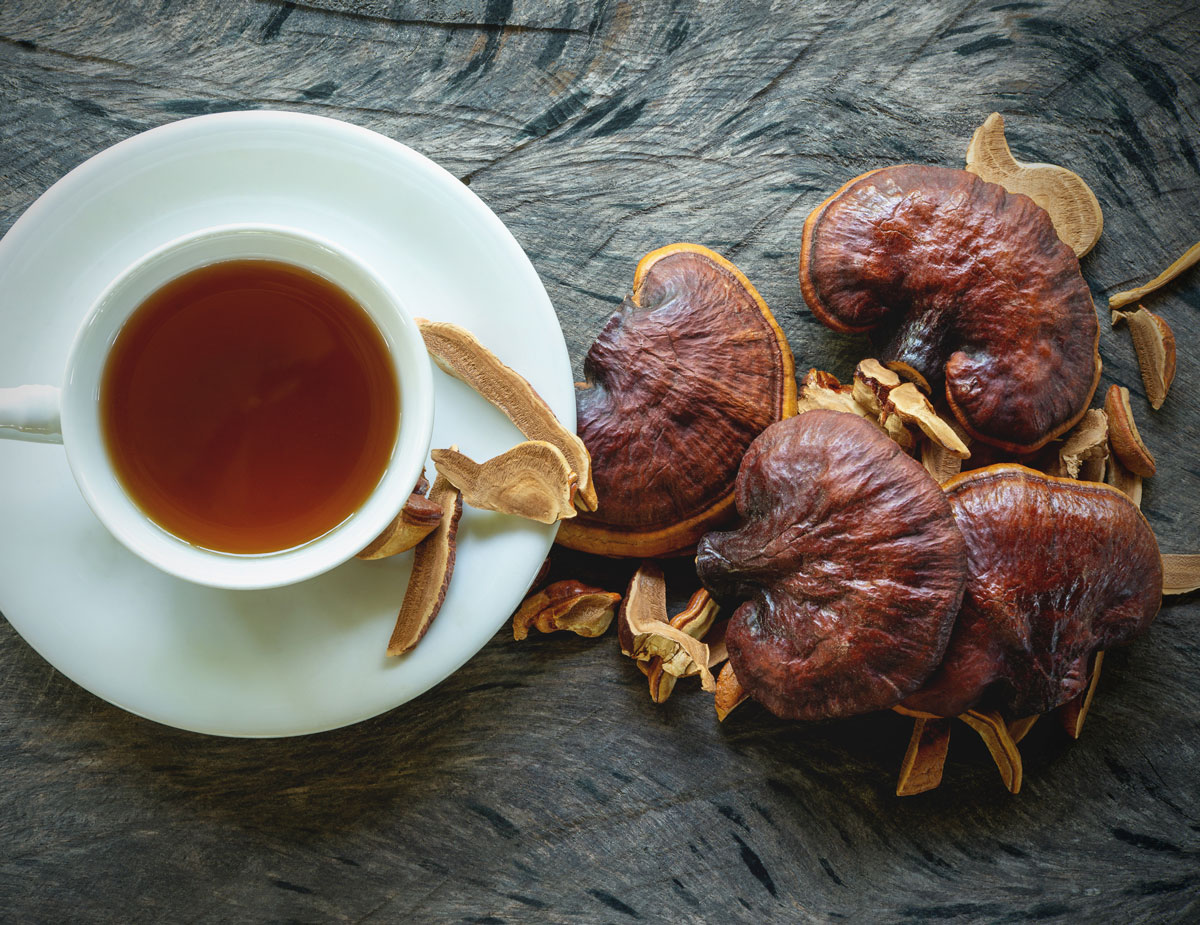As it turns out, the saying, “trust your gut” may be more than a metaphor. The gut is an amazing system involving a number of organs all working together to supply your body with the nutrients it needs to thrive. That’s why gut health is so crucial to the overall quality of our lives, playing a pivotal role in everything from digestion and nutrient absorption to immune function and mood. In short, when your digestive system works properly, you feel better.

With so many of our bodily systems depending on the performance of our digestion, it’s no wonder many people are focused on getting their gut health under control. In this article, our Whole Health experts share their recommendations for supplements that naturally support gut health. We’ll also delve into the lifestyle factors that influence your digestive system and the methods that have been proven to strengthen it, so you can get back to trusting your gut.
Why is Gut Health Important?
Gut health is integral to our overall wellness. The digestive system is responsible for breaking down food and extracting the essential nutrients required for energy production, growth, and tissue repair. A healthy gut ensures efficient digestion and optimal nutrient absorption.
Gut health has a profound impact on the immune system, too. Did you know that about 70% of the body’s immune cells reside in the gut? A healthy gut fortifies the immune system, helping to fend off harmful pathogens and prevent infections.
Beyond digestion and immunity, gut health influences various other aspects of our health. Research has linked an imbalance in gut bacteria, known as dysbiosis, to numerous health conditions, including irritable bowel syndrome (IBS), inflammatory bowel disease (IBD), and mental health issues like anxiety and depression.
So, how can we maintain a healthy gut? Incorporating supplements specifically designed for gut health is a highly effective strategy. These supplements typically contain probiotics (beneficial bacteria) and prebiotics (food for probiotics) that replenish and nourish the gut with a healthy balance of bacteria.
Let’s take a closer look at some of the best natural supplements that will help you get digestive symptoms under control. Look for these in the Whole Health department of your local Market of Choice.
Key Supplements for Gut Health
Probiotics:
Probiotics are beneficial bacteria that restore the balance of gut flora. Different types of probiotics, such as Lactobacillus and Bifidobacterium, offer various benefits. Probiotics can enhance digestive health, boost the immune system, and even improve mental well-being. Here are a few staff favorites to look for on our Whole Health shelves:
- Living Alchemy Probiotic Terrain: a strain of kefir kombucha paired with herbal ingredients, such as aloe vera, slippery elm, and marshmallow root to repair and deliver nutrients while relieving a compromised gut.
- Whole Earth & Sea Pre + Probiotics from Natural Factors: this whole food symbiotic formula contributes 10 billion live cultures from 10 strains of beneficial bacteria as well as a fermented prebiotic blend of organic whole foods.
Digestive Enzymes:
Digestive enzymes are essential for breaking down food and aiding nutrient absorption. These enzymes help your body digest proteins, carbohydrates, and fats more efficiently, reducing the likelihood of digestive discomfort. If you experience issues like bloating or gas, incorporating digestive enzyme supplements into your routine may provide relief. Digestive enzymes are particularly helpful for traveling or when you’re under high or prolonged stress, as these factors often disrupt the natural balance of flora in the digestive tract. Here’s what our experts recommend:
- Natural Factors Acidophilus & Bifidus: this double-strength formula has been blended with goats’ milk to provide an excellent environment to grow beneficial microflora, helping to maintain normal intestinal health.
Omega-3 Fatty Acids:
Omega-3 fatty acids are known for their anti-inflammatory properties. Inflammation in the gut can lead to various digestive problems, so reducing inflammation is vital for maintaining gut health. Omega-3 fatty acids, commonly found in fatty fish like salmon and mackerel, help reduce inflammation and support overall gut health. If your diet lacks omega-3 rich foods, consider adding an omega-3 supplement. Here’s what our experts suggest:
- Barlean’s Flax Oil: high in ALA omega-3 fatty acid. USDA organic, gluten-free, and kosher. Fresh, cold-pressed, and protected from air and light.
A word to the wise: While supplements can be beneficial, it’s important to consult with your healthcare professional before starting a new regimen. They can offer personalized advice and help determine which supplements are best suited for your needs.
How to Improve Gut Health
Maintaining a healthy diet rich in fiber and probiotics is your first line of support for gut health. Fiber acts as a prebiotic, feeding the beneficial bacteria in your gut. Foods like broccoli, apples, lentils, and chia seeds are excellent sources of fiber.
Hydration is another key factor in promoting gut health. Water helps soften stool and prevent constipation, ensuring regularity. Aim to drink at least 8 cups of water daily, and consider herbal teas or infused water for added flavor and hydration.
Probiotics and fermented foods also play a significant role in gut health. Probiotics, which are live bacteria, offer numerous benefits to your digestive system. You can find probiotics in supplements and foods like yogurt, kefir, sauerkraut, and kimchi. These foods introduce beneficial bacteria into your gut, promoting a healthy balance.
Lifestyle Factors Affecting Gut Health
Your lifestyle plays a crucial role in the health of your digestive system; either supporting or disrupting the delicate balance of bacteria in your gut and ultimately affecting your overall gut health. Here are some lifestyle factors to consider:
Stress Management and its Impact on Gut Health:
Chronic stress can have a detrimental impact on your gut health. Stress hormones can disrupt the balance of bacteria in your gut, leading to digestive issues, inflammation, and a weakened immune system. To support your gut health, it’s important to manage stress through practices such as meditation, deep breathing exercises, or engaging in activities that help you relax.
Regular Exercise for a Healthy Gut:
Regular exercise benefits not only your physical health but also plays a role in maintaining a healthy gut. Exercise can help regulate bowel function, improve digestion, and reduce the risk of certain gut-related conditions. Set a goal for at least 30 minutes of moderate-intensity exercise most days of the week to support your gut health.
Avoiding Excessive Alcohol Consumption:
Excessive alcohol consumption can negatively impact your gut health in several ways. Alcohol can irritate the lining of your digestive system, disrupt the balance of bacteria, and impair nutrient absorption. Limit your alcohol intake to moderate levels or consider avoiding it altogether to promote a healthy gut.
At Market of Choice, we care about supporting your gut health journey. In addition to offering a wide range of supplements, we have a highly knowledgeable staff in our Whole Health Department that can answer questions and offer educated advice on dietary supplements and more. Stop by, and see what digestive solutions we have in store for you.
Explore More Topics
Related Posts
- Oregon on the Table: A Locally Sourced Thanksgiving
There’s something extra special about gathering around the Thanksgiving table when the food in front of you was grown, raised, baked, or crafted right here in Oregon.
- A Local Guide to Mushroom Supplements: Nature’s Powerhouses from the Pacific Northwest
Mushrooms are more than just tasty umami bombs—they’re loaded with compounds like beta-glucans, antioxidants, and adaptogens that support everything from immunity to mental clarity.
- Don Froylan Cheese: The Legacy That Melts in Your Mouth
When Don Froylan Ochoa and his wife Zoila landed in Oregon in the late '90s, they had big dreams and… a serious lack of authentic Mexican cheese. So, they did what any cheese-loving family would do—rolled up their sleeves and got to curdling.



